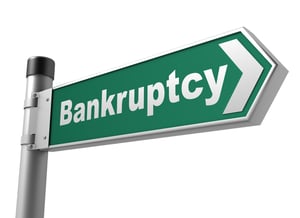For Hawaiian Golf Project, it’s Aloha New Ownership, Aloha Old Debt
The owners of an ambitious Hawaiian golf project in the Makaha Valley of Oahu said Aloha (hello) to new owners, and Aloha (goodbye) to old debt obligations.
In an adversary proceeding, the collective owners of the Makaha Valley Country Club, golf courses, surrounding undeveloped land, and other related assets (the “Owners”) avoided obligations undertaken in connection with a loan extension provided by Tianjin Dinghui Hongjun Equity Investment Partnership (the “Lenders”). The Bankruptcy Court for the District of Hawaii ruled that the extension was constructively fraudulent, and thus avoidable under Bankruptcy Code section 548. See In re Pac. Links U.S. Holdings, Inc., 21-br-00094, 2022 WL 3221232 (Bankr. D. Haw. Aug. 8, 2022).
The Makaha Valley project was meant to include two golf courses, a country club, and the development of individual plots surrounding the golf courses for residential construction. At one time, there was even talk of Tiger Woods redesigning the courses. But the Owners’ grand plans never came to fruition, and they eventually filed for chapter 11 bankruptcy.
In the adversary proceeding, the Owners challenged the validity of certain transactions with the Lenders. The Lenders had originally loaned money to an affiliate of the Owners, who then provided the loaned funds to the Owners for use on the project. When the loans became due and the Owners’ affiliate was unable to pay, the Lenders entered into another transaction that was essentially an extension of the loan. The extension came with the caveat, however, that the Owners’ property (along with the personal property of the individual behind the project, and his wife’s property) became collateral for repayment of the debt.
Despite the extension, the Owners were unable to develop the property or raise enough capital to repay the loans, eventually leading to their bankruptcy filing. In an adversary proceeding against the Lenders, the Owners argued the loan extensions were “constructively fraudulent,” and thus avoidable pursuant to Bankruptcy Code section 548.
Under section 548, a debtor-in-possession may avoid an obligation if the debtor received less than “reasonably equivalent value” in exchange for the obligation, and one of four situations was also present:
- The debtor was insolvent on the date the transfer was made or obligation incurred, or the debtor became insolvent as a result of the transfer or obligation;
- The debtor was engaged in business or a transaction, or was about to engage in business or a transaction, for which any property remaining with the debtor was an unreasonably small capital;
- The debtor intended to incur, or believed that the debtor would incur, debts that would be beyond its ability to pay as such debts matured; or
- The debtor made the transfer or incurred the obligation to, or for, the benefit of an insider under an employment contract and not in the ordinary course of business.
The Court found both that (a) the Owners did not receive a reasonably equivalent value for their obligation, and (b) that two of the additional conditions under section 548 were met, specifically: the “unreasonably small capital” and the “inability to pay” conditions.
As to the first requirement, the Court reasoned that the loan extension was worth significantly less than what the Owners provided. In exchange for a deferral of payment obligations for the Owners’ affiliate, the Owners themselves—for the first time—became responsible for the loans’ repayment and put their property up as collateral.
As to the second requirement, and specifically the unreasonably small capital provision, the Court found that before the loan extensions they had “only a small chance of obtaining enough capital to fund their operations.” The extension agreements “eliminated that small chance. Therefore, the ‘unreasonably small capital’ criterion [was] met.”
As to inability to pay, the Court found that at the time of the loan extensions, the Owners “intended to incur, and believed they would incur, debts that they could not pay when due.” While the individual behind the Owners painted a rosy picture to the Lenders, the Owners’ own executives expressed that they would not be able to make the required loan payments.
Accordingly, the Court found the debts avoidable. In re Pac. Links U.S. Holdings, Inc., 21-00094, 2022 WL 3221232, at *10 (Bankr. D. Haw. Aug. 8, 2022).
For golf fanatics visiting or living in Hawaii, the Court also provided positive news. It approved the sale of the property at issue to a new owner that plans to restart development. Some are skeptical of the new owners’ ability to succeed where others failed. And certainly, potential lenders will be cautious about extending loans. But currently, the new owners appear bullish about the future of golf in the Makaha Valley.


![[Event] Intellectual Property Law Institute 2022 – September 15th – 16th, New York, NY | Practising Law Institute (PLI) [Event] Intellectual Property Law Institute 2022 – September 15th – 16th, New York, NY | Practising Law Institute (PLI)](https://www.pli.edu/globalassets/faculty/b/be/bender_david_20220814.jpg)



